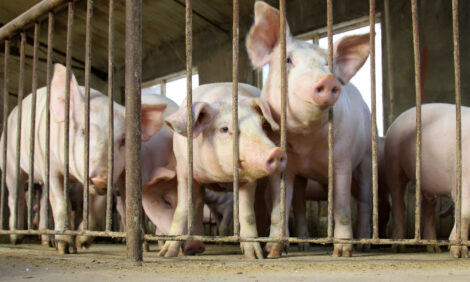



Weekly Overview: Biosecurity Hits the Headlines
ANALYSIS – The importance of good biosecurity for the whole supply chain has been highlighted in the last week. New Zealand's Supreme Court has banned imports of raw pork cuts to reduce the risk of PRRS entering the country. Pig producers in the US have been advised to step up biosecurity measures to control PEDV, the latest virus to cause scouring and mortality in young pigs. Finally, experts have cast some doubt on the conclusions of a recent study showing deleterious effects of feeding GM feed ingredients to growing-finishing pigs.As one of the best ways of keeping diseases out of a country or reducing its spread, biosecurity has been in the pig industry news in the last week.
New Zealand’s Ministry for Primary Industries has been ordered to stop biosecurity clearance. The Supreme Court has banned imports of raw pork cuts, while pig farmers are continuing their legal battle against the imports.
The Court has issued an order to the Ministry to stop granting biosecurity clearance to raw pork imports entering the country from the US, Europe, Canada and Mexico.
The ban is expected to remain in place until the New Zealand Pork Industry Board makes an appeal to the Court.
It is a result of an argument made by the board that raw pork imports from countries with a potentially lethal pig disease breach biosecurity laws.
The board aims to stop raw imports coming from countries whose pigs have been affected by Porcine Reproductive and Respiratory Syndrome (PRRS), also known as blue-ear disease.
An order was initially made on 31 May but the order has been revoked.
The new court order remains in force pending determination of the present appeal or further order of the Court.
Labour’s Primary Industries spokesperson, Damien O’Connor, has welcomed the Supreme Court's order for an interim ban on the import of raw pork products.
Pig producers in the US have been advised to use good biosecurity practices to reduce the risk of animals becoming infected with porcine epidemic diarrhoea virus (PEDV).
PEDV is similar to transmissible gastroenteritis virus and causes diarrhoea and vomiting in pigs, says Josh Schaeffer, production veterinary resident at the University of Missouri College of Veterinary Medicine.
A recently published paper reveals that there is room for improvement in the biosecurity measures taken on Spanish pig farms. Pig farmers did pay attention to biosecurity measures regarding visitors and vehicles but did not appear to assess accurately the risks posed by the introduction of new breeding animals, for example.
On a different theme, a long-term study of pigs fed a combination of genetically modified (GM) soybeans and GM maize has revealed differences in the animals' reproductive and intestinal tracts and liver compared with those fed a non-GM diet, report researchers based in Australia and the US.
Following up on the publication of the paper, four experts in the analysis of scientific data, statistics and risk have commented on the study, casting doubt on some of the conclusions.






